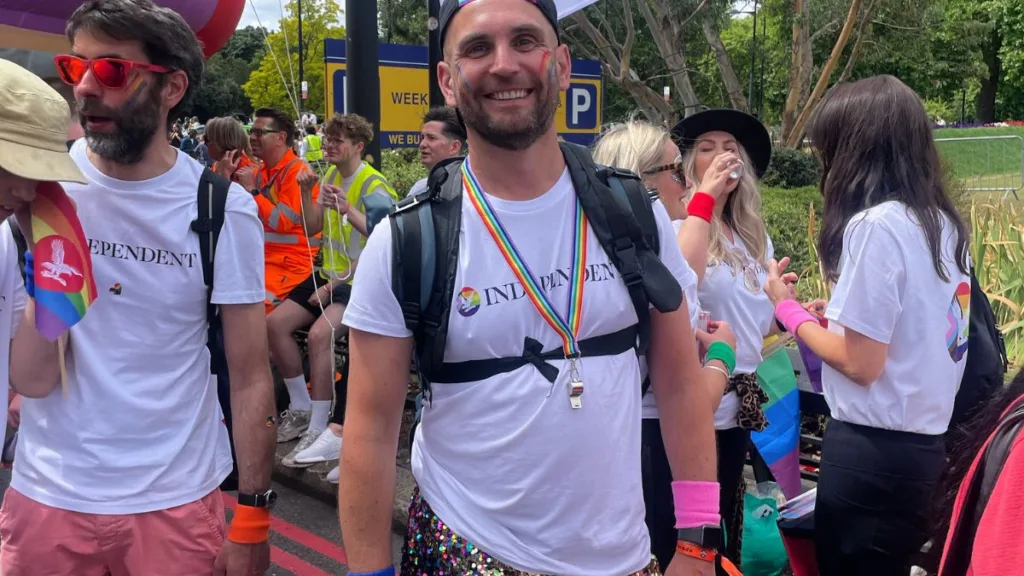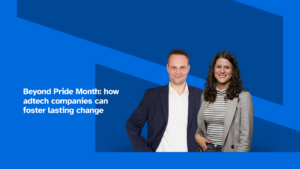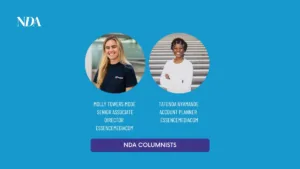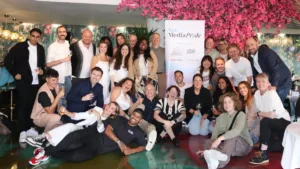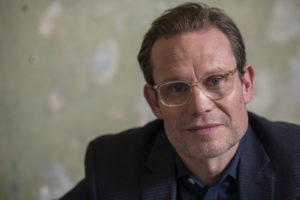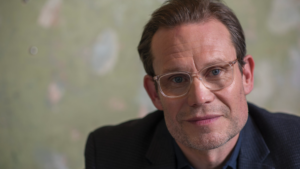With the launch of NDA’s Media Pride, we talk to leaders across the industry to understand the opportunities and challenges within our industry’s LGBTQIA+ community. Next up is Bryan Scott, Marketing Communications Director, Ozone.
What is the biggest challenge for members of the LGBTQIA+ community in the digital industry and how is it being overcome?
It’s not really an issue that’s exclusive to our industry, but I think one of the biggest challenges is ensuring that all members of our community are treated fairly and with the same level of respect. I cannot even try to imagine for one moment how it feels to be a trans person in today’s climate, but I do know that we can all do our bit to make them feel comfortable, valued and welcomed in the working environment. No amount of Pride months or logo changing can compensate for a lack of that.
The broader advertising and media sector often talks about using our collective power to create positive change in the world, and as we continue the much needed focus on inclusivity it’s important that we do not lose sight of the most marginalised groups who need our support the most.
What three things could employer companies do to make the digital industry better for the LGBTQIA+ community?
A previous company that I worked with recognised it had a challenge with LGBTQIA+ representation, and set about tackling this with an all-company inclusion celebration and education programme. As a newbie in the organisation, I found it a lovely way of demonstrating the issues faced by the LGBTQIA+ community in the workplace to my new non-LGBTQIA+ colleagues.
Perhaps rather obviously, talk to your team about what inclusion looks like. That should definitely work both ways by talking to both LGBTQIA+ and non-LGBTQIA+ colleagues. Sharing the outputs of this with the wider business is also really important.
And finally, revisit your policies to ensure they are as inclusive as possible for LGBTQIA+ colleagues – make sure both the language and the action reflect this. It’s worth making a conscious effort to ensure these deliver fairly for everyone in your business as there’s every likelihood you will have to deal with this at some point. So it’s always best to act positively and to be on the front foot.
What impact can a more inclusive approach to LGBTQIA+ communities in our industry have on society as a whole?
As an industry, we have the ability to ensure that those platforms that give minority, and often marginalised communities, a voice are well funded. As we saw with the recent closure of gal-dem, the impact of under-investment can have dire consequences.
I believe that the word inclusivity is critical to success here, and from a media planning and buying perspective this has to mean ‘being included’ and not treated as a ‘bolt-on’. What this really means is treating LGBTQIA+ platforms in the same way you would other heritage media, while at the same time removing the challenges on the buy-side – e.g. keyword blocking – that stops investment reaching these websites that do such a fantastic job of engaging our community.
What support structures and organisations are most important and effective to the LGBTQIA+ community in the digital industry?
Without sounding like a cliché, it’s critical that everyone is able to bring their authentic selves to the workplace. I would say my own career journey has been relatively uneventful when considering my sexuality, but I was incredibly conscious of trying to fit in when I first joined the media industry – heck, I even went to a football match at Wembley with my first boss just to fit in! I would have zero qualms about turning that offer down today.
From an ally perspective, just keep an eye on your LGBTQIA+ colleagues, check in with them regularly and be aware of situations that could potentially make them feel a little ostracised. Again, this has to come from the top of the organisation and of course, it should be considered for everyone, but especially those who might find themselves in the office minority.
How effective are trade bodies, industry awards, and the industry press at supporting and promoting LGBTQIA+ inclusivity?
I think our trade bodies generally do a good job at tackling the issue of talent inclusivity, but if I was being totally honest what I have seen is largely support for LGTBQIA+ talent, rather than proactive, high profile championing, and more importantly action. That being said, I think those principles of inclusivity and equality within the workplace that our trade bodies champion, are largely applicable to every minority group.
When it comes to industry awards I’m a great believer that they should be there to recognise great craft and results, rather than promoting any individual audience group. Over the past few years, I have judged some incredible LGBTQIA+ entries – Skittles Pride from EssenceMediacom comes to mind – and I’ve seen PinkNews beat some of the most established media brands to many a top spot.
That’s how it should be – that the work speaks for itself because it connects so beautifully with our community.
The idustry press is doing a great job at surfacing both the challenges of LGBTQIA+ people working in the industry and their representation in advertising itself. Giving a platform to marginalised groups is really important to help bring their voices front and centre – that’s why I applaud initiatives like this.



